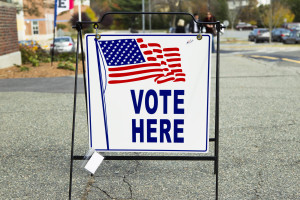Expert witnesses in child injury and abuse disagreed with each other on the stand this week as both prosecutors and defense lawyers relied on medical experts in the murder trial of a Madison, Wisconsin man accused of killing his girlfriend’s 5-year-old son. During the course of this week’s testimony, expert witnesses dueled on the nature of the child’s injuries and the cause of his tragic death.
Wisconsin Man Charged with Killing 5-year-old
Dakota Black, 25, has been charged with first degree reckless homicide in the death of 5-year-old Brayden Turnbill who died from severe brain injury. According to prosecutors Black was responsible for watching Turnbill, his girlfriend’s son, when the child came home from school, during which time he fatally abused the boy. Turnbill was found unconscious by his mother when she returned from work, and was unresponsive to efforts to revive him. He died in the hospital three days later.
After investigating the incident and talking to the medical examiner, prosecutors formally charged Black alleging that he abused the child so severely that Turnbill suffered fatal brain injuries. In order to support their contention that Turnbill’s injuries were caused by physical abuse by Black instead of an accidental fall as the defendant claimed, prosecutors called a variety of medical expert witnesses who alleged the boy’s injuries were the result of child abuse.
Prosecution Expert Witnesses Testify to Signs of Child Abuse
Early in the Dakota Black homicide trial, prosecutors called to the stand medical examiner Kristin Roman who was responsible for examining Brayden’s body after his death. According to Dr. Roman, the contusions suffered by the child were not suggestive of an accidental fall, but instead were consistent with signs of child abuse. Dr. Roman told jurors that Brayden Turnbill died of blunt force trauma that was not accidentally caused.
The next medical expert witness to testify for the prosecution was Dr. Barbara Knox of the American Family Children’s Hospital Child Protection Program who testified that Brayden was likely unconscious at the time of his injuries and did not have a period of awareness between the time his head trauma occurred and his injury. Dr. Knox, who was present for surgery that attempted to save Brayden’s life, told jurors that the nature of his injuries suggested the brain damage occurred immediately after he suffered a physical blow to the head. The timing of Brayden’s injuries is critical because defense attorneys for Black allege that the boy could have suffered the trauma at any time – including the period before Black had sole responsibility for watching him. In response to questioning about the possibility that Brayden’s injuries could have happened before a traumatic event, Dr. Knox held firm and reiterated that in her expert medical opinion the nature of the boy’s injuries precluded a lucid interval between the blunt force and his brain damage.
Finally, prosecutors called to the stand Dr. Wilbur Smith, a pediatric radiologist who is an expert in blunt force trauma. Dr. Smith, who has testified as an expert witness in over 100 child abuse trials across the country, told jurors, “This was a very major injury, so it would have taken a lot of force to cause this injury.” Going further, Dr. Smith said that it was highly unlikely that the force required to cause Brayden’s injuries was accidental because it was so severe.
After the prosecution closed its expert witness heavy case, defense attorneys for Dakota Black mounted a response with an expert witness to counter the assertion that Braydon’s injuries were definitely caused by child abuse.
Defense Uses Expert Witness to Counter Claims of Child Abuse
Defense attorneys for Dakota Black began their case by calling Dr. John Plunkett to the stand to counter prosecution experts who told jurors it was highly unlikely that Brayden Turnbill’s injuries were accidental. Dr. Plunkett, an experienced expert witness in the field of forensic pathology who has testified in more than 150 trials, told jurors that Brayden could have died from an accidental fall and questioned the validity of the prosecution experts’ conclusions.
Dr. Plunkett directly contradicted testimony from Dr. Knox and told jurors that it was possible Brayden experienced a lucid interval between the trauma that caused his injury and the severe brain damage that he suffered. Under Plunkett’s theory, Brayden could have been injured at any time – even the time before Black had sole responsibility for the boy’s care. Dr. Plunkett further testified that the boy could have had a latent injury in his brain that was aggravated by significantly less force than other expert witnesses said was required for Braydon’s fatal injury. Although Dr. Plunkett did not hypothesize about a cause of death, he told jurors that it was reasonable to doubt conclusions that Braydon Turnbill died of intentionally caused blunt force trauma.













